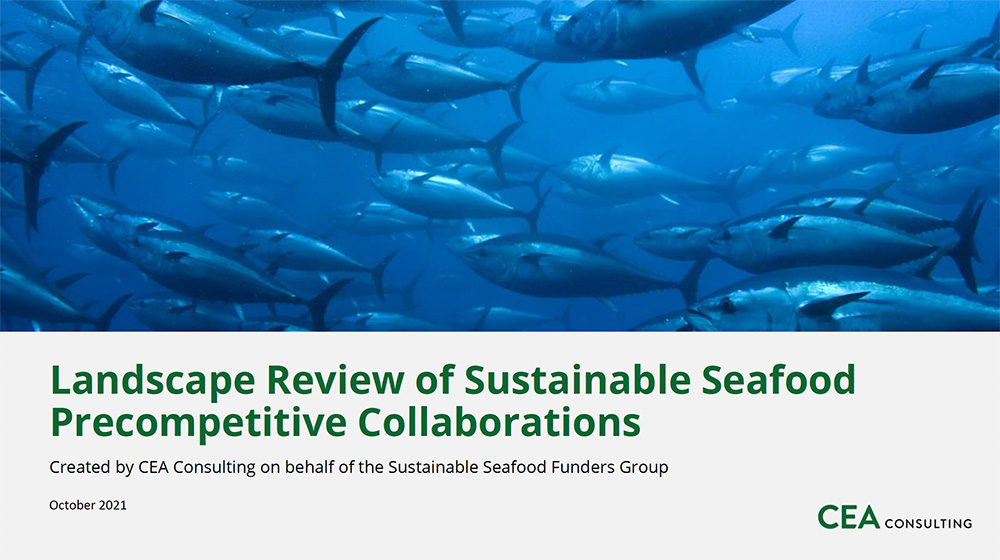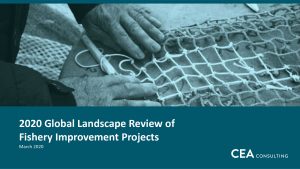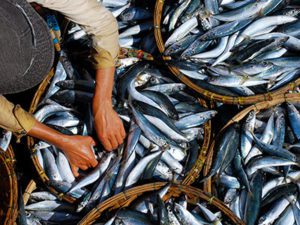The sustainable seafood precompetitive collaboration landscape continues to diversify by membership, supply chain segment, commodities covered, geographic scope, and purpose.
The 2021 Landscape Review of Sustainable Seafood Precompetitive Collaborations builds on the 2018 Seafood Metrics Report Supplement on Industry Engagement Platforms by surveying 16 precompetitive platforms in the sustainable seafood movement. By capturing information from public websites and key informant interviews with platform leaders, this report aims to elevate the seafood market community’s understanding of the precompetitive collaboration landscape.
For the context of this report, a precompetitive collaboration involves industry competitors working together to share best practices within or across seafood commodities, collaborating on shared challenges, and taking collective action to drive change in seafood sustainability.
The report, authored by CEA Consulting and commissioned by the Sustainable Seafood Funders’ Group, a joint initiative of the David and Lucile Packard Foundation, the Gordon and Betty Moore Foundation, and the Walton Family Foundation, seeks to highlight key data insights, emergent trends, and best practices of the evolving precompetitive collaboration landscape.
Key findings include:
- Four types of platform archetypes (knowledge-sharing entities, commitment-oriented platforms, scientific research bodies, and project funders) have emerged and reflect differing priorities, types of members, levels of supply chain engagement, and monitoring and reporting activities.
- Almost 400 companies are engaged in 16 precompetitive collaborations, up from about 250 engaged in 12 platforms in 2018. 28% of companies participate in more than one platform.
- 15% of companies participating in precompetitive collaborations also have 1-on-1 partnerships with Conservation Alliance for Seafood Solutions NGOs. 40% of companies with 1-on-1 NGO partnerships also participate in precompetitive collaborations.
- 80% of platforms are structured around some type of time-bound or open-ended commitment for members to work toward, and almost all platforms collectively engage in government advocacy.
- Platforms have several different funding models, the most common of which is receiving both philanthropic and industry financial support. Over 60% of platforms receive some amount of philanthropic financial support,
If you have any questions or feedback about the report, please contact Sydney Sanders of CEA Consulting at sydney@ceaconsulting.com.




